In today’s automotive landscape, sport utility vehicles (SUVs) dominate the market, blending versatility, performance, and style to meet the diverse needs of modern drivers. From families requiring spacious interiors and advanced safety features to outdoor enthusiasts seeking rugged off-road capabilities, SUVs have become a go-to choice for many consumers.
However, with a wide variety of makes and models available, one crucial factor often guides purchasing decisions: reliability. A dependable vehicle not only offers peace of mind but also reduces long-term ownership costs and ensures a more enjoyable driving experience.
This is why many prospective SUV buyers turn to trusted sources like J.D. Power’s Vehicle Dependability Study, which provides invaluable insights into how well vehicles hold up over time.
The J.D. Power Vehicle Dependability Study (VDS) is widely respected in the automotive industry for its rigorous methodology and real-world data collection.
Conducted annually, the study gathers feedback from owners of vehicles that are typically three years old, measuring the number of problems experienced per 100 vehicles across various categories, including engine performance, transmission, electronics, interior quality, and overall driving experience.
The fewer issues a vehicle reports, the higher its dependability score, making it easier for buyers to identify models likely to offer trouble-free ownership. For SUVs, this study is especially important given the complexities of modern technology integration and the mechanical demands placed on these larger vehicles.
In this article, we dive into the findings of the 2025 J.D. Power Vehicle Dependability Study to highlight the best and worst performers among SUVs. On one hand, we explore the top five SUVs that have distinguished themselves through exceptional reliability.
These vehicles demonstrate strong engineering, quality materials, and robust manufacturing processes that translate to fewer repairs and greater owner satisfaction.
Brands like Toyota, Lexus, and Hyundai consistently appear on this list, showcasing their commitment to quality and dependability. We examine what sets these models apart, from their powertrains and build quality to the user-friendly technology that complements their durable designs.
Conversely, the study also sheds light on SUVs that have faced significant reliability challenges. The five lowest-ranking SUVs in the 2025 report reveal common pitfalls such as transmission failures, electronic glitches, and drivetrain problems. These issues not only inconvenience owners but can also result in costly repairs and diminished resale value.
SUVs like the Ford Explorer and Land Rover Discovery, while popular and well-regarded for their features or off-road prowess, have struggled with consistency in quality. Understanding the specific problems these models face helps consumers make informed decisions and may encourage manufacturers to address weaknesses more aggressively.
Beyond listing the most and least reliable SUVs, this article aims to provide context about the factors influencing SUV reliability in general. The balance between incorporating cutting-edge technology and maintaining mechanical simplicity plays a critical role.
As automakers push the envelope with sophisticated infotainment systems, driver-assistance features, and hybrid or electric powertrains, the potential for electronic issues increases. At the same time, traditional mechanical components must be engineered for durability to withstand varied driving conditions, from urban streets to rugged trails.
Furthermore, maintenance habits and dealer support also impact real-world reliability outcomes. Vehicles backed by comprehensive warranties and strong service networks often enjoy better upkeep and fewer unresolved problems. This holistic approach to vehicle dependability underscores the importance of not just the vehicle itself but the entire ownership experience.
By the end of this article, readers will have a clear understanding of which SUVs stand out for their reliability and which ones have faced difficulties, according to one of the industry’s most authoritative sources. Whether you’re in the market for a new family hauler, a luxury SUV, or a capable off-roader, knowing how these vehicles perform over time is invaluable.
Reliability is more than a statistic—it’s the foundation of confidence, safety, and satisfaction on every journey. Let’s begin by exploring the top five SUVs that have earned J.D. Power’s highest marks for dependability.
Also Read: 5 SUVs With Best Water-fording Depth And 5 With Low Clearance
Top 5 Most Reliable SUVs According to J.D. Power
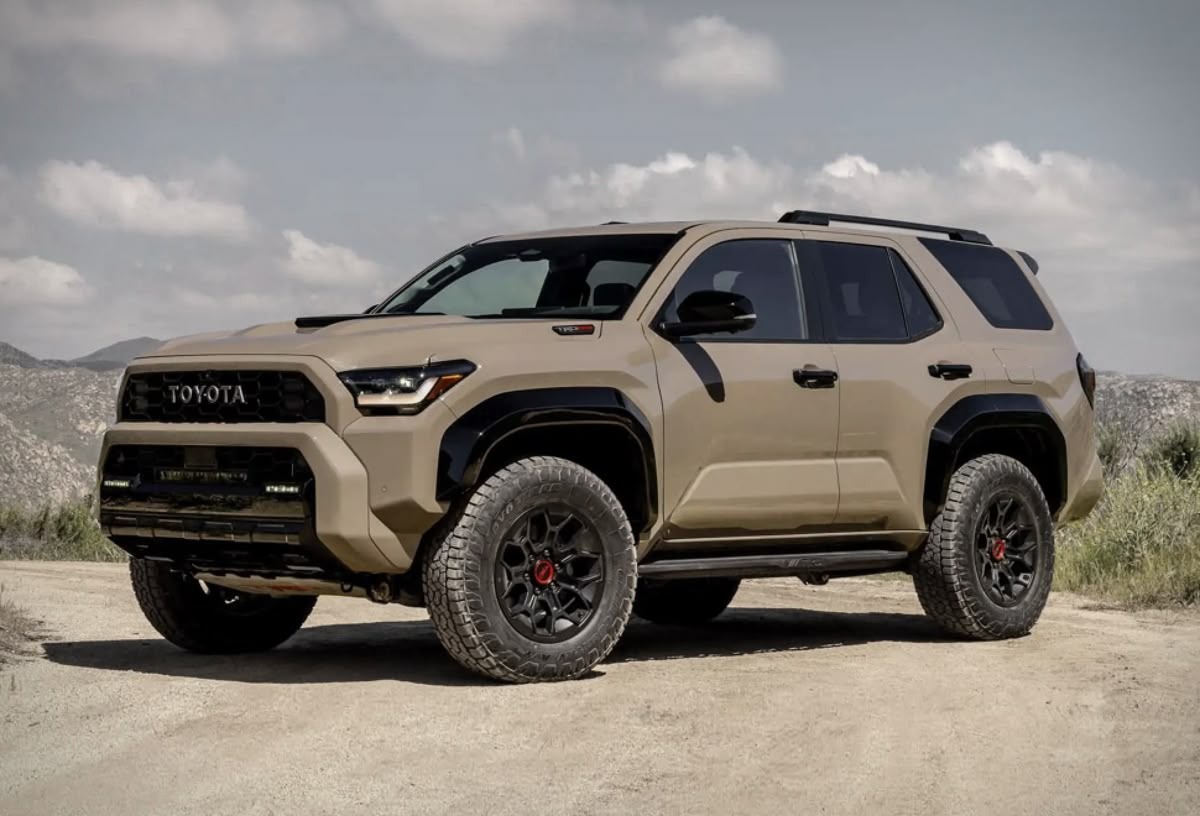
1. 2025 Toyota 4Runner
The Toyota 4Runner is a longstanding icon in the SUV segment, renowned not only for its rugged off-road capabilities but also for its unmatched reliability. Year after year, the 4Runner consistently ranks highly in reliability surveys, including J.D. Power’s Vehicle Dependability Study.
Its body-on-frame construction, derived from a proven pickup truck platform, lends it exceptional durability and robustness. Many owners report that the 4Runner holds up exceptionally well even under tough conditions, making it a favorite for outdoor enthusiasts who need a vehicle that can handle rough terrain without frequent repairs.
One of the main reasons the 4Runner scores so highly is its straightforward engineering. Unlike many modern SUVs that are laden with complex electronics and infotainment systems prone to glitches, the 4Runner keeps its design simple and reliable.
The powertrain, primarily a V6 engine paired with a solid automatic transmission, has a reputation for longevity and consistent performance. Reports of transmission failures or major drivetrain issues are very rare, and routine maintenance is often enough to keep the vehicle running smoothly for hundreds of thousands of miles.
The interior of the 4Runner is designed with durability in mind, featuring materials that withstand wear and tear from active lifestyles. While some critics note that its cabin technology may feel a bit outdated compared to competitors, this simplicity translates into fewer problems reported by owners.
The infotainment system and other electronic components have shown solid reliability, a crucial factor given that electronic glitches are among the most common issues in newer vehicles. The 4Runner’s reputation for minimal recalls and service bulletins further reinforces its reliability credentials.
Lastly, Toyota’s extensive dealer and service network plays a significant role in maintaining the 4Runner’s dependability. Owners often praise the availability of parts and the expertise of Toyota-certified technicians.
Additionally, Toyota’s commitment to continuous improvement and quality control has ensured that each new model year addresses previous issues swiftly. This combination of rugged build, simple yet effective engineering, and strong customer support helps explain why the 2025 Toyota 4Runner stands as a benchmark for reliability in the SUV market.
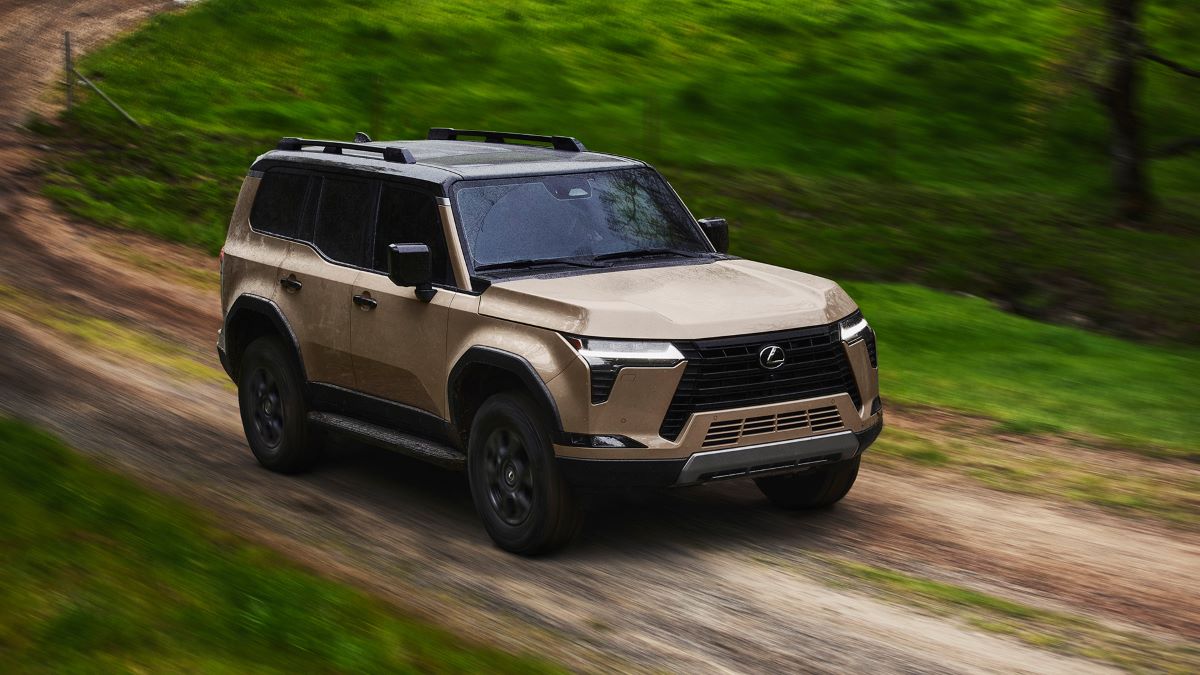
2. 2025 Lexus GX
The Lexus GX occupies a unique niche as a luxury SUV that doesn’t compromise on reliability. Built on the same platform as the Toyota 4Runner, the GX benefits from the proven durability of Toyota’s engineering while adding an upscale touch in terms of comfort and technology.
This blend of ruggedness and refinement is rare in the luxury SUV class, where sometimes complexity can undermine reliability. Owners of the Lexus GX frequently commend it for combining luxury features with a rock-solid mechanical foundation.
Mechanically, the GX shares the dependable V8 engine known for its smooth power delivery and long-lasting performance. Lexus engineers have refined the suspension and chassis to offer a comfortable yet capable ride, particularly in off-road or challenging driving scenarios.
The transmission, a six-speed automatic, has shown remarkable reliability, with few reported problems even after extended use. These factors contribute to the GX’s excellent performance in J.D. Power’s dependability rankings, where it routinely outperforms many other luxury SUVs.
The interior of the GX is another strong point. It boasts premium materials and thoughtful design, which, coupled with robust build quality, means fewer issues related to wear and electronics.
Lexus has invested heavily in intuitive infotainment and driver-assistance systems that, while advanced, have demonstrated good reliability in owner surveys. This careful balance between sophistication and dependability is a key reason why the GX appeals to buyers who want luxury without the hassle of frequent repairs or glitches.
Beyond the engineering and design, Lexus’s reputation for customer service enhances the overall ownership experience. The brand’s commitment to quality extends to its dealerships and maintenance programs, ensuring that GX owners receive attentive care and reliable support.
This holistic approach—from the factory floor to the service bay—helps explain why the 2025 Lexus GX remains one of the most reliable luxury SUVs available today, earning high marks in J.D. Power’s reliability study.
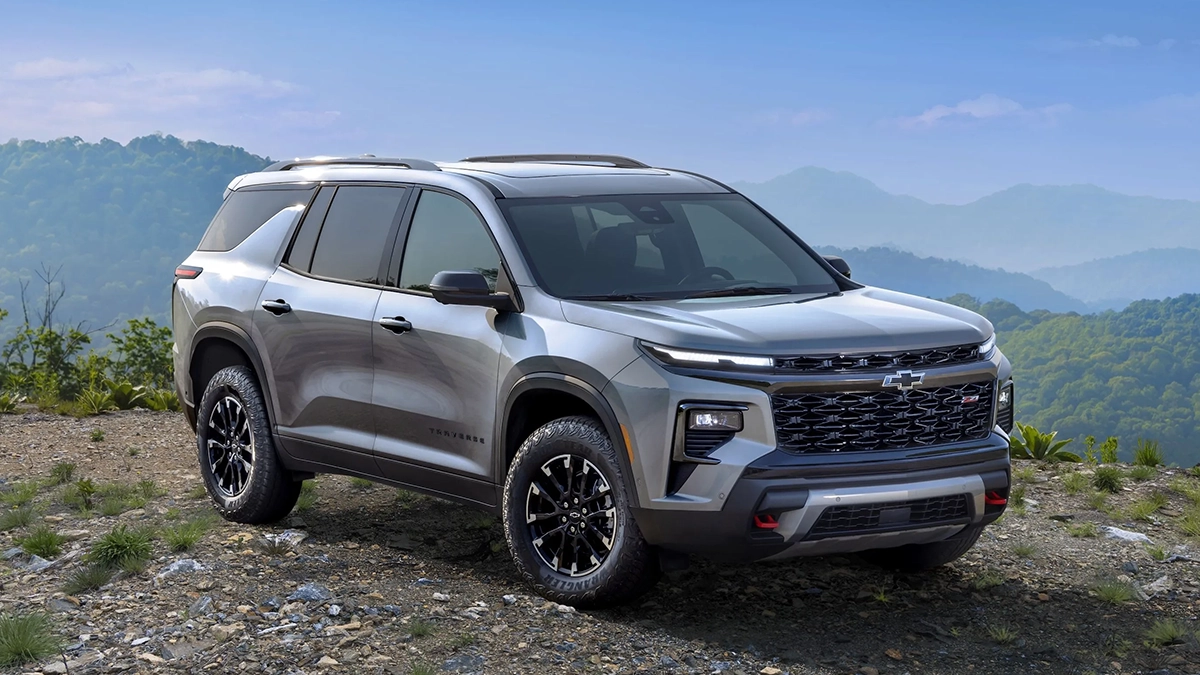
3. 2025 Chevrolet Traverse
The Chevrolet Traverse is a standout in the full-size SUV category, not only for its spacious interior and family-friendly features but also for its strong reliability performance.
While American SUVs have sometimes struggled with reliability perceptions compared to their Japanese counterparts, the Traverse has steadily improved in recent years, gaining respect among consumers and critics alike. J.D. Power’s data reflects this trend, with the Traverse scoring well on issues related to its engine, transmission, and overall durability.
At the heart of the Traverse’s reliability is its well-engineered V6 engine, which delivers solid performance while maintaining fuel efficiency for its class. Chevrolet has refined the powertrain over several generations, focusing on durability and minimizing the risk of major mechanical failures.
The transmission system, often a point of concern in many SUVs, has shown consistent reliability, with relatively few complaints about shifting problems or breakdowns. This translates into peace of mind for owners who depend on their vehicle for daily driving and long family trips.
Inside, the Traverse offers a versatile and comfortable cabin with materials designed to withstand heavy use. Parents especially appreciate the durability of the interior surfaces, which resist stains and wear.
Chevrolet’s infotainment system has also improved reliability-wise, with fewer reports of freezing screens or connectivity issues than seen in previous model years. This improvement in electronics is crucial, as modern SUV buyers expect seamless tech integration alongside traditional mechanical reliability.
Moreover, Chevrolet’s growing focus on quality control and customer satisfaction has helped elevate the Traverse’s standing in dependability studies. Dealerships often report high satisfaction among Traverse owners regarding maintenance and repairs.
The availability of parts and a well-trained service network also contribute to the SUV’s long-term reliability. In sum, the 2025 Chevrolet Traverse represents a compelling option for buyers seeking a spacious, reliable family SUV with strong performance and minimal downtime.
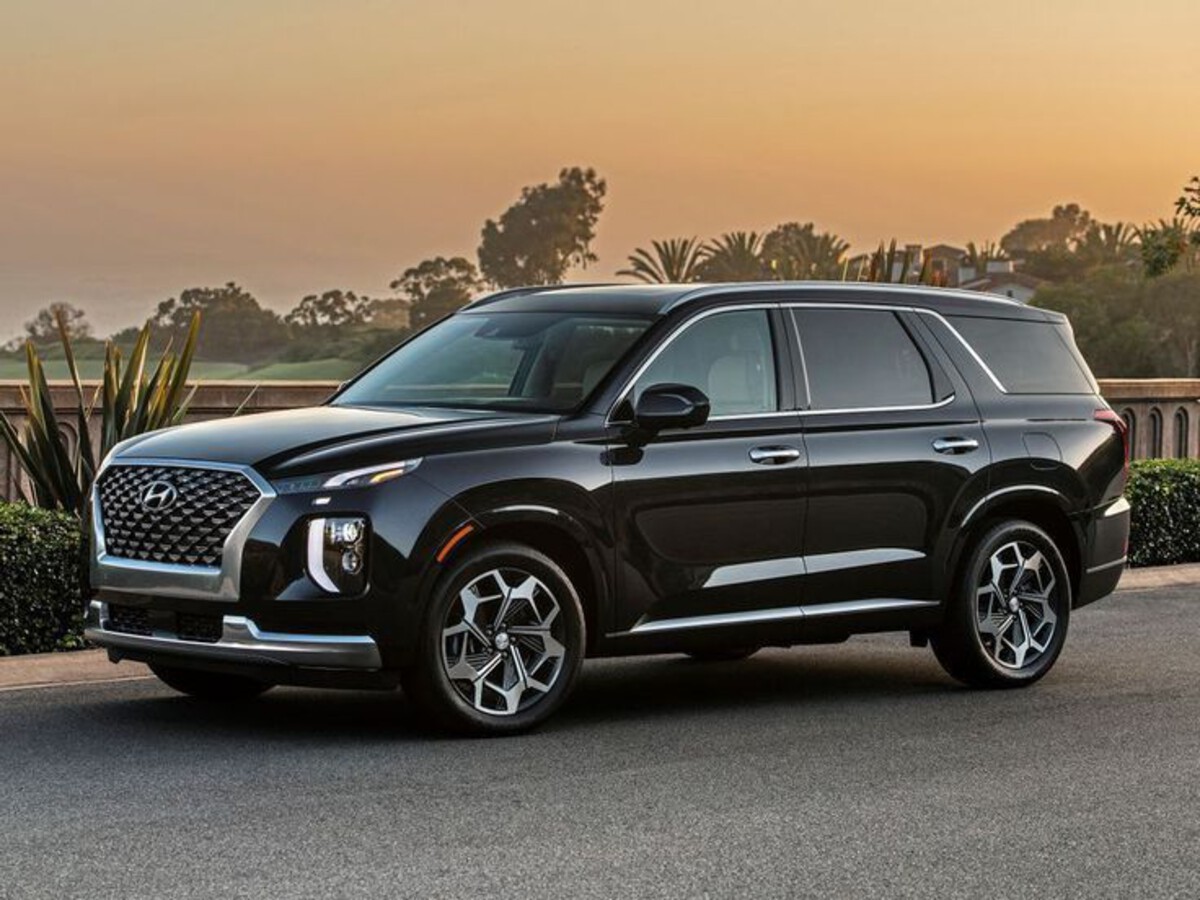
4. 2025 Hyundai Palisade
The Hyundai Palisade has quickly become a favorite in the midsize SUV segment, thanks to its striking combination of value, luxury-like features, and solid reliability.
Hyundai’s transformation over the past decade into a brand known for quality and dependability is well exemplified by the Palisade. The model scores highly in J.D. Power’s Vehicle Dependability Study, reflecting both its mechanical soundness and owner satisfaction.
One of the key contributors to the Palisade’s reliability is its robust powertrain—a V6 engine paired with an eight-speed automatic transmission. Hyundai’s engineering focus on reliability means these components experience fewer breakdowns and issues compared to some competitors.
Owners frequently report smooth and consistent performance, even under heavy use or challenging driving conditions. This reliability extends to the vehicle’s hybrid-like technology, which is designed to be both efficient and dependable.
The Palisade’s interior also deserves mention for its quality and durability. Hyundai has employed premium materials that hold up well over time, resisting wear and tear from daily use. The cabin technology, including touchscreen infotainment and advanced safety features, has proven reliable, with few electronic glitches reported.
This is significant in an era where tech problems can often dominate vehicle complaints, especially in newer models. Hyundai’s commitment to software updates and responsive customer service helps maintain a positive ownership experience.
In addition to product quality, Hyundai offers an industry-leading warranty, providing extra assurance to buyers concerned about reliability. This comprehensive coverage includes powertrain and bumper-to-bumper protections that underscore Hyundai’s confidence in the Palisade’s durability.
When combined with solid engineering, thoughtful design, and attentive customer support, these factors ensure that the 2025 Hyundai Palisade remains one of the most reliable SUVs on the market today.
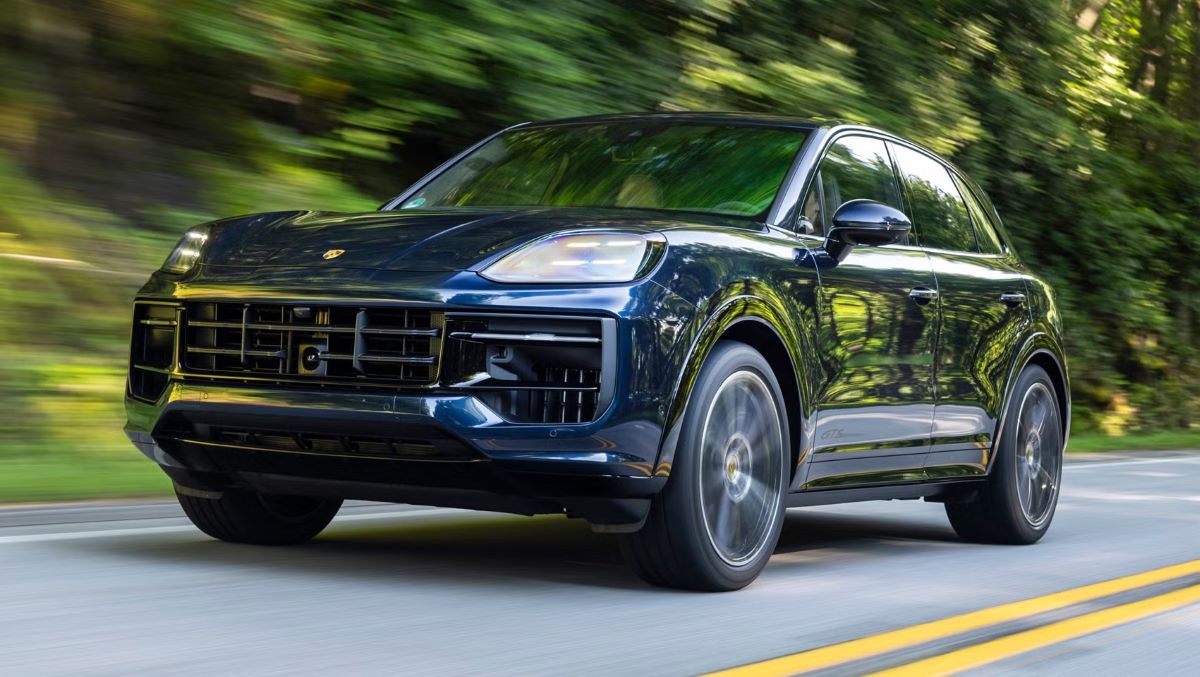
5. 2025 Porsche Cayenne
The Porsche Cayenne blends performance and luxury with surprising reliability, a combination that often seems difficult to achieve. Porsche, known primarily for its sports cars, has managed to translate its engineering excellence into the SUV segment without sacrificing durability.
The 2025 Cayenne’s strong showing in J.D. Power’s reliability study attests to Porsche’s ability to build a high-performance SUV that owners can depend on.
Under the hood, the Cayenne features a range of powerful yet reliable engines, including turbocharged V6 and V8 options. Porsche’s meticulous engineering ensures that these engines deliver thrilling performance while maintaining long-term durability.
Transmission systems in the Cayenne have also shown remarkable resilience, with smooth shifting and few reported mechanical failures. This reliability is particularly impressive given the complex technology and high-performance demands placed on the vehicle.
The interior of the Cayenne exemplifies luxury, with high-end materials and cutting-edge technology. Despite the advanced features, Porsche has designed its systems with reliability in mind.
The infotainment and driver-assist technologies operate with minimal glitches, reducing the frustration often associated with high-tech vehicles. Owners appreciate the blend of comfort, innovation, and dependability, which contributes to the Cayenne’s strong reputation.
Porsche’s dedication to quality doesn’t end with the vehicle itself; their customer service and maintenance programs are equally impressive. The brand offers comprehensive support to ensure owners’ vehicles remain in top condition. This commitment extends the Cayenne’s lifespan and helps maintain its value.
Together, the Porsche Cayenne’s blend of performance, luxury, and reliability makes it a standout in the luxury SUV market, earning it a place among the top dependable SUVs in J.D. Power’s rankings.
Top 5 Least Reliable SUVs According to J.D. Power
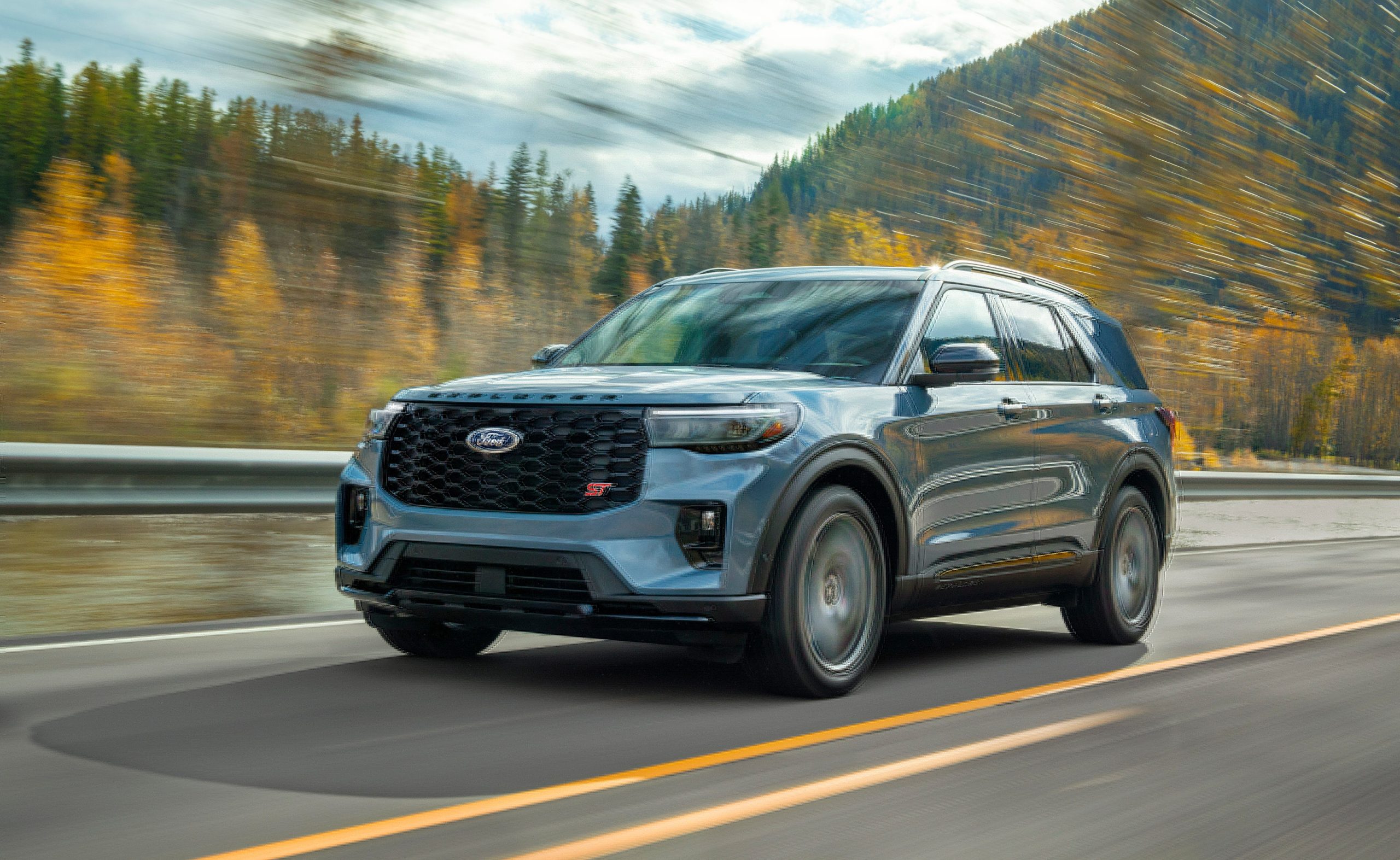
1. 2025 Ford Explorer
The Ford Explorer, despite being one of America’s most popular midsize SUVs, has struggled with reliability issues that have affected its reputation in recent years.
While it remains a favorite for its spacious interior, versatile seating, and advanced tech features, the vehicle has encountered a range of mechanical and electronic problems that have been reported by many owners. These concerns have contributed to a lower ranking in J.D. Power’s Vehicle Dependability Study, raising red flags for prospective buyers prioritizing long-term durability.
One of the most commonly cited problems with the 2025 Ford Explorer involves its transmission. Many owners have reported issues such as rough shifting, hesitation, and in some cases, complete transmission failure.
These problems not only affect the driving experience but also often lead to costly repairs. Ford has attempted to address some of these issues with software updates and recalls, but the frequency and severity of complaints suggest deeper underlying engineering challenges that have yet to be fully resolved.
Electrical system glitches are another significant area of concern for Explorer owners. Complaints range from malfunctioning infotainment screens and connectivity problems to erratic behavior of advanced driver-assistance systems.
In today’s tech-driven vehicle market, such issues can be particularly frustrating, as they impact convenience and safety features that buyers expect to work flawlessly. Moreover, inconsistent software updates and difficulty in diagnosing electronic faults have added to owner dissatisfaction.
Despite its powerful engine options and comfortable ride, the Explorer’s reliability problems have made it a less desirable choice compared to competitors.
These ongoing issues highlight the importance of balancing innovation with proven engineering. While Ford continues to innovate with new technologies and designs, the reliability data suggests that the Explorer may require further refinement to regain consumer trust and improve its standing in the reliability rankings.
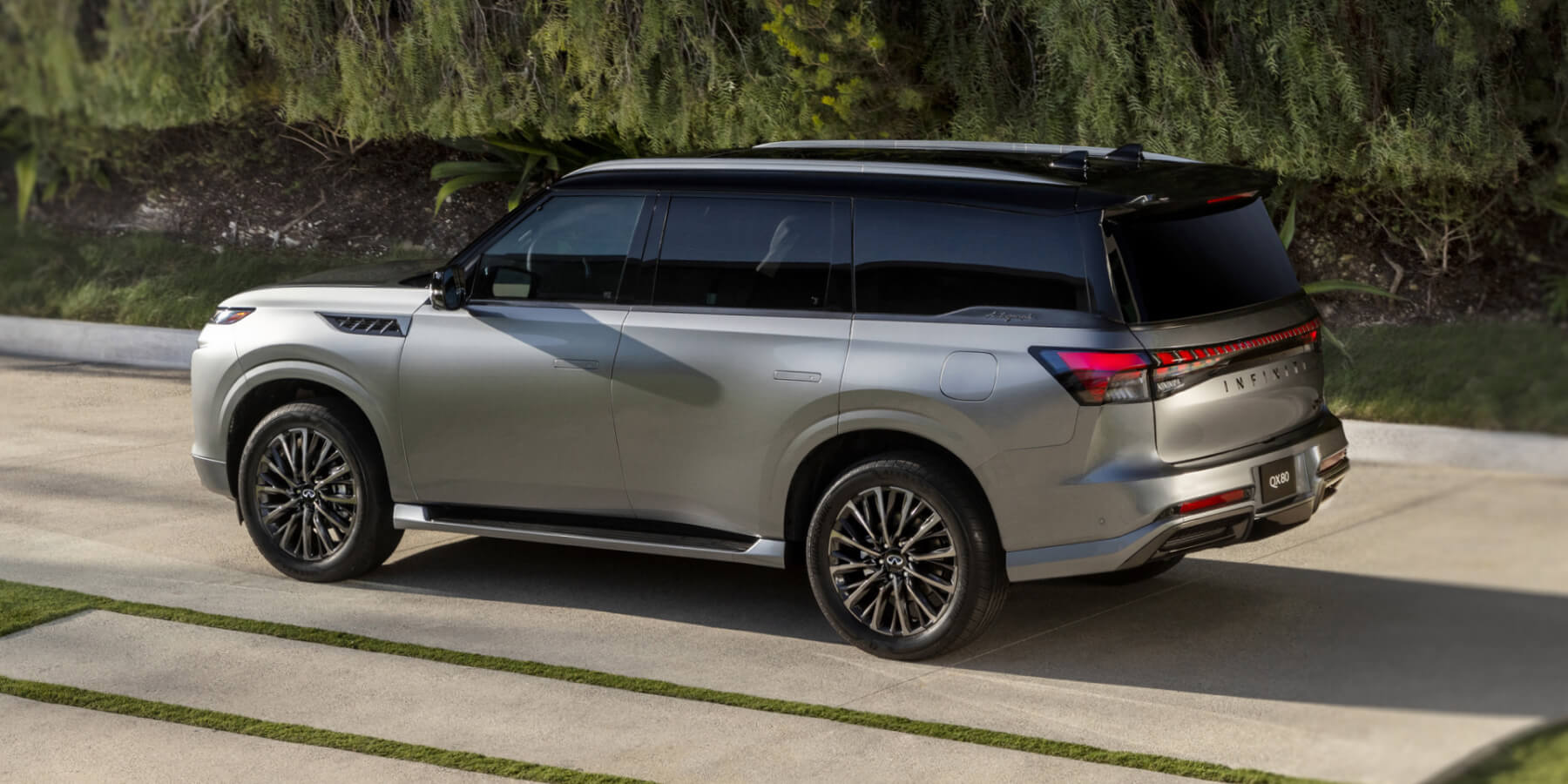
2. 2025 Infiniti QX80
The Infiniti QX80 is a full-size luxury SUV that offers opulence and strong performance, but it has not been able to avoid reliability concerns that have been flagged in J.D. Power’s dependability reports.
Buyers looking for a blend of luxury and dependability might find the QX80’s recent track record disappointing, as it has faced issues that undermine its appeal as a long-term investment. While Infiniti delivers on style and power, the vehicle’s mechanical and electronic challenges have become significant factors in its reliability score.
One of the primary issues reported by QX80 owners involves the drivetrain, particularly the transmission system. Some drivers have experienced rough or delayed shifting, which detracts from the otherwise smooth power delivery of the SUV’s V8 engine.
In addition to driving discomfort, transmission problems can lead to expensive repairs and increased downtime. These mechanical faults have been a persistent source of frustration and a key reason for the vehicle’s lower dependability ranking.
The QX80 has also been criticized for problems with its in-car electronics. From malfunctioning navigation systems to inconsistent behavior in its suite of safety features, these electronic issues detract from the luxury experience Infiniti aims to provide.
Such glitches can erode owner confidence in the vehicle’s advanced technology, which is a critical selling point in this class. Furthermore, repair costs associated with electronic components tend to be higher, amplifying owner concerns.
Infiniti’s approach to addressing these reliability problems has been gradual, with incremental software patches and updates rather than comprehensive redesigns.
This strategy has done little to dramatically improve the QX80’s reliability scores in recent years. For prospective buyers who value dependability alongside luxury, the 2025 Infiniti QX80 represents a cautionary example where impressive aesthetics and features do not necessarily guarantee trouble-free ownership.
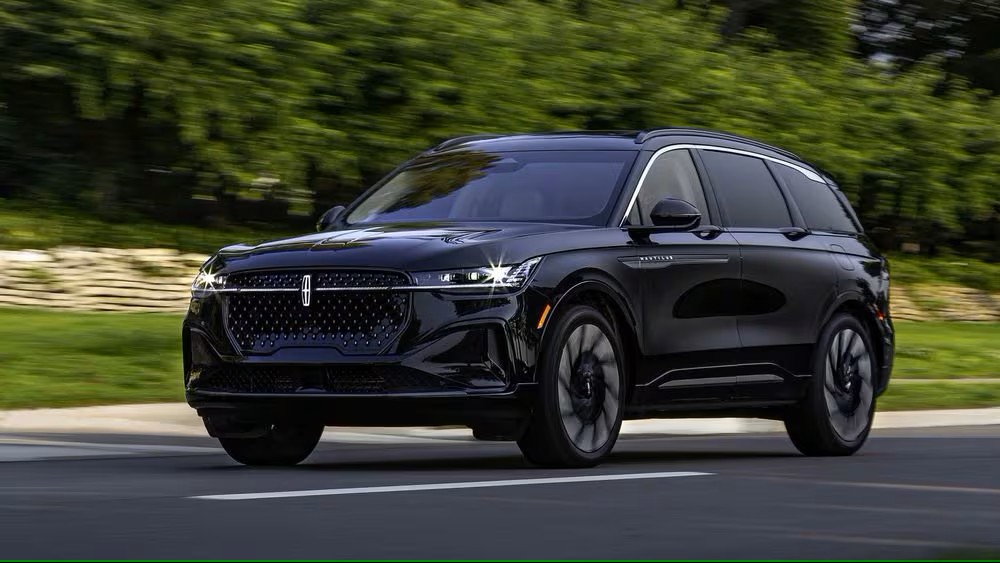
3. 2025 Lincoln Nautilus
The Lincoln Nautilus aims to offer a premium midsize SUV experience but has encountered reliability challenges that have impacted its desirability.
Despite its elegant design and refined driving dynamics, the Nautilus has struggled with a range of issues that have been reported consistently by owners, influencing its lower ranking in J.D. Power’s Vehicle Dependability Study. These problems highlight some of the difficulties Lincoln has faced in balancing luxury and dependability in its product lineup.
Engine-related issues have been at the forefront of the Nautilus’s reliability woes. Several owners have reported problems such as rough idling, stalling, and occasional power loss, which can be both concerning and inconvenient.
These problems not only affect everyday usability but also contribute to increased maintenance and repair costs. The brand has responded with warranty extensions and service campaigns, but the persistence of engine complaints indicates deeper mechanical challenges.
In addition to engine troubles, the Nautilus has faced significant electrical system concerns. Malfunctions in the infotainment system, erratic behavior in climate control, and occasional dashboard warning lights have been reported.
Such electronic glitches disrupt the driving experience and undermine the premium feel that Lincoln tries to offer. Since modern luxury vehicles heavily rely on integrated technology, these faults have been a major factor weighing down the Nautilus’s reliability reputation.
While Lincoln continues to invest in improving build quality and customer service, the 2025 Nautilus remains a vehicle where potential buyers should exercise caution.
Prospective owners should weigh the benefits of luxury features and styling against the possibility of increased repair costs and downtime. Until Lincoln can fully resolve these persistent issues, the Nautilus is likely to continue its position among the less reliable SUVs in the market.
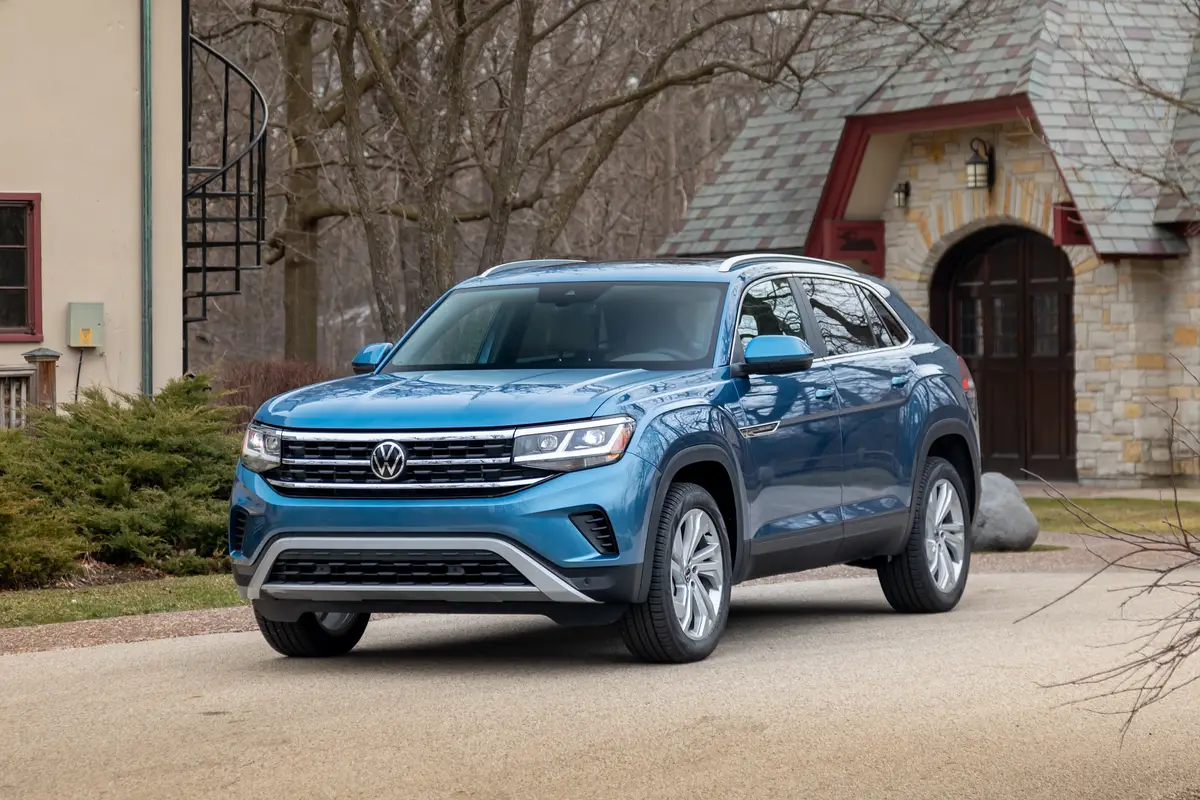
4. 2025 Volkswagen Atlas
The Volkswagen Atlas, a spacious and family-oriented SUV, has gained popularity for its roomy interior and European styling. However, this appeal is somewhat tempered by reliability issues that have surfaced over recent model years, as reflected in J.D. Power’s dependability data.
While the Atlas offers a comfortable ride and practical features, its mechanical and electronic reliability has raised concerns among owners and industry experts alike.
Transmission problems are among the most commonly reported issues with the Atlas. Drivers have experienced jerky or delayed gear shifts, which can compromise driving comfort and safety.
Some owners have faced more severe transmission failures requiring costly repairs or replacements. Volkswagen has issued technical service bulletins and recalls to address these problems, but many customers feel these fixes have been inconsistent or insufficient, contributing to a perception of unreliable engineering.
The Atlas also suffers from drivetrain concerns, including issues with the all-wheel-drive system that can affect traction and handling. These problems are particularly troubling given the SUV’s positioning as a family vehicle designed to provide security in various driving conditions.
Complaints about drivetrain noises and failures indicate that components may lack the durability expected in this competitive segment.
In addition to mechanical troubles, the Atlas’s infotainment and electronic systems have not been immune to faults. Owners have reported glitches such as frozen touchscreens, inconsistent Bluetooth connectivity, and erratic sensor warnings.
These electronic annoyances detract from the overall driving experience and are frequently cited in owner reviews and surveys. Despite Volkswagen’s efforts to improve software stability through updates, these recurring issues contribute to the Atlas’s placement among less reliable SUVs.
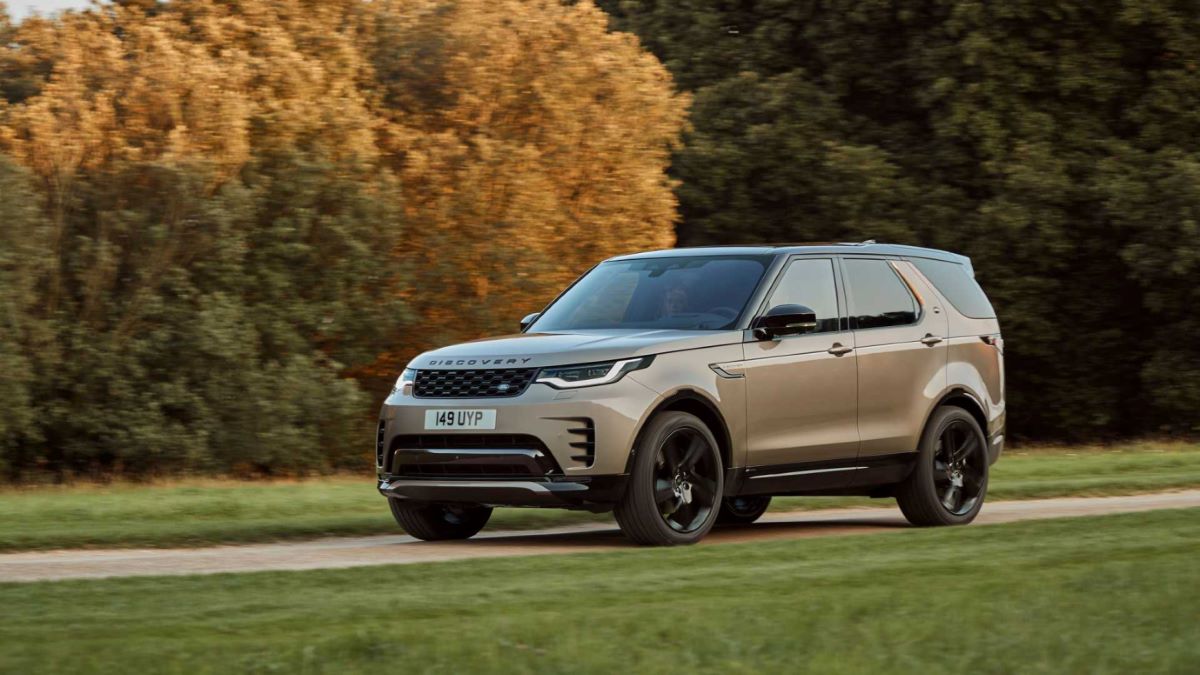
5. 2025 Land Rover Discovery
The Land Rover Discovery is well-known for its impressive off-road capabilities and luxurious interior, but it has historically struggled with reliability — a pattern that continues with the 2025 model.
While the Discovery delivers on performance and style, J.D. Power’s dependability data reveals that owners face numerous mechanical and electronic issues, undermining the brand’s premium reputation. For buyers who prioritize trouble-free ownership, these reliability concerns are a significant drawback.
One of the biggest challenges for the Discovery lies in its drivetrain. Reports of transmission failures, differential problems, and other drivetrain malfunctions are frequent, leading to costly repairs and inconvenient breakdowns.
These issues are particularly disappointing given the vehicle’s high price point and promise of rugged dependability. Land Rover has introduced various updates and recalls to mitigate these problems, but owner feedback indicates ongoing concerns.
The Discovery also experiences electrical system glitches that affect key features such as infotainment, climate control, and advanced driver assistance.
Malfunctions in these systems not only frustrate drivers but can also raise safety questions, especially when related to automated features. The complexity of Land Rover’s electronics appears to contribute to their vulnerability, and troubleshooting often requires extended service visits.
Despite these setbacks, the Land Rover Discovery remains a sought-after SUV for those valuing luxury and off-road prowess. However, potential buyers should be aware of the vehicle’s reliability challenges and prepare for the possibility of higher maintenance costs.
Until Land Rover can consistently deliver improvements in build quality and electronic robustness, the Discovery will continue to face criticism in dependability studies and among discerning consumers.
Also Read: 5 Pickups With Best Factory Bed Lighting And 5 With None
Choosing the right SUV is a significant decision that involves balancing many factors—performance, comfort, technology, style, and, crucially, reliability. As we have seen through the lens of the 2025 J.D. Power Vehicle Dependability Study, not all SUVs are created equal when it comes to long-term durability and owner satisfaction.
The data presents a clear spectrum, from vehicles that deliver exceptional reliability and peace of mind to those that have struggled with persistent mechanical and electronic issues. This disparity underscores the importance of thorough research and consideration before committing to a particular model.
The top five most reliable SUVs identified in this study—such as the Toyota 4Runner, Lexus GX, Chevrolet Traverse, Hyundai Palisade, and Porsche Cayenne—exemplify what it means to build vehicles that stand the test of time.
These models benefit from a combination of proven engineering, robust powertrains, high-quality materials, and thoughtfully designed technology systems that enhance the driving experience without introducing unnecessary complexity.
Owners of these vehicles typically report fewer breakdowns, lower maintenance costs, and higher satisfaction, all of which contribute to their strong resale values and brand loyalty. These SUVs demonstrate that reliability is achievable even in a market increasingly filled with advanced technology and luxury features.
Conversely, the five least reliable SUVs in the 2025 study—the Ford Explorer, Infiniti QX80, Lincoln Nautilus, Volkswagen Atlas, and Land Rover Discovery—highlight the challenges some manufacturers face in delivering consistent quality. Transmission failures, electrical glitches, and drivetrain problems have been common themes among these models.
These issues not only disrupt everyday use but also erode consumer confidence and increase the total cost of ownership. For buyers, such information is crucial; it emphasizes the need to weigh the appeal of features and styling against the potential inconvenience and expense of repairs. While these SUVs may offer advantages in other areas, their reliability shortcomings cannot be overlooked.
The analysis also brings to light the evolving challenges in automotive design and manufacturing. As SUVs incorporate more sophisticated technology—ranging from infotainment systems to driver-assistance features and hybrid powertrains—the complexity of these systems can introduce new failure points.
Automakers must strike a delicate balance between innovation and dependability, ensuring that new features enhance rather than compromise the ownership experience. This balance is especially important in SUVs, which are often used in diverse environments and for demanding applications.
Moreover, the role of proper maintenance and strong dealership support emerges as a key factor in real-world reliability. Even the most dependable SUV can encounter problems if neglected or poorly serviced.
Conversely, vehicles backed by attentive dealer networks and comprehensive warranties tend to enjoy better upkeep and fewer unresolved issues. Consumers should consider these factors alongside reliability ratings to get a complete picture of ownership satisfaction.
Ultimately, the insights provided by J.D. Power’s Vehicle Dependability Study empower buyers to make informed choices. Reliability data complements other vehicle attributes, helping consumers identify SUVs that offer the best blend of performance, luxury, and long-term value. For those prioritizing a hassle-free ownership experience, opting for a model with a proven reliability track record is a wise investment.
As the SUV market continues to evolve, manufacturers that focus on building dependable vehicles will gain a competitive edge, while those that neglect reliability risk losing customer trust. For buyers, staying informed about these trends and consulting trusted sources like J.D. Power remains essential.
Whether you choose one of the top reliable SUVs or consider others with a careful eye on potential issues, understanding reliability will help ensure that your SUV supports your lifestyle reliably and enjoyably for years to come.
